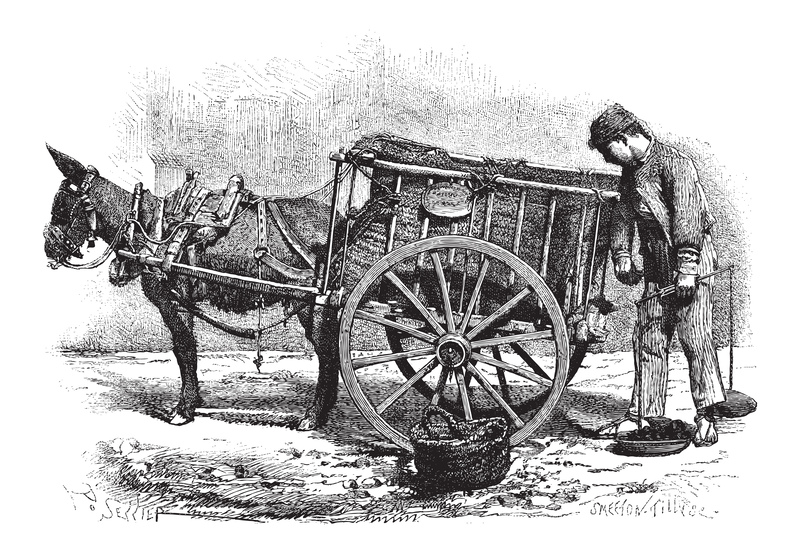As global energy demands continue to rise, the search for sustainable and renewable energy sources becomes increasingly urgent. Repurposing waste serves as a promising solution by transforming various waste types into renewable energy, contributing significantly to environmental conservation and energy sustainability. This article delves into the types of waste essential for generating renewable energy and their pivotal roles in reshaping our energy landscape.
Types of Waste Essential for Renewable Energy
Waste-to-energy technologies harness the potential of various waste types, transforming them into usable energy. Below, we explore some of the most crucial waste types that are being repurposed for renewable energy generation.
1. Biomass Waste
- Agricultural Waste: Agricultural byproducts such as crop residues (straw, husks), manure, and food waste can be transformed into bioenergy through processes like anaerobic digestion and fermentation. This conversion not only produces clean energy but also reduces methane emissions from decomposing waste.
- Forestry Residues: Waste from logging and forest maintenance, including branches, leaves, and sawdust, can serve as a significant source for bioenergy. These materials are often utilized in biofuel production and to power biomass boilers.
2. Municipal Solid Waste (MSW)
Commonly known as household garbage, Municipal Solid Waste is a highly abundant resource for generating energy. Waste management facilities employ incineration and gasification techniques to convert this waste into electricity and heat, reducing landfill reliance and greenhouse gas emissions.
- Incineration: The burning of waste at high temperatures to produce steam, which drives turbines to generate electricity.
- Gasification: A process that turns organic waste into syngas, which can be utilized for electricity generation or converted into biofuels.
3. Industrial Waste
Industrial processes generate significant amounts of waste, including solvents, chemicals, and metals. Repurposing industrial waste for energy not only reduces the environmental impact of these materials but also contributes to energy recovery efforts.
- Sludge: Sludge from wastewater treatment plants can produce biogas through anaerobic digestion, contributing to energy generation.
- Waste Oils: Used industrial oils can be reprocessed into biofuels, providing renewable energy and reducing the dependency on fossil fuels.
4. E-Waste
Electronic waste, or e-waste, consists of discarded electronic appliances, which often contain hazardous materials. However, they also contain valuable resources like metals that can be recovered and reused. Energy recovery from e-waste involves the incineration of non-recyclable materials, with energy retention processes maximizing output.

Environmental and Economic Benefits of Waste-to-Energy Conversion
The repurposing of waste for renewable energy not only mitigates the negative effects of waste on the environment but also plays a strategic role in energy production and economic growth. Here are some of the pivotal benefits:
Environmental Benefits
- Reduced Greenhouse Gas Emissions: Utilizing waste for energy minimizes methane emissions from landfills and decreases the reliance on fossil fuels, thereby reducing carbon footprint.
- Landfill Diversion: Significant amounts of waste are diverted from ending up in landfills, curbing pollution and land degradation.
- Resource Conservation: By recovering and reusing materials found in waste, natural resources are conserved, supporting a circular economy model.
Economic Advantages
- Job Creation: The waste-to-energy industry creates job opportunities ranging from waste collection to technology development and operational roles in energy plants.
- Energy Independence: Local waste-to-energy facilities contribute to a region's self-sufficiency in energy production, reducing the need for imported energy resources.

Challenges and Future Prospects
While the potential of repurposing waste for renewable energy is immense, several challenges need addressing to unlock this prospect fully:
Challenges
- Cultural Adaptation: Shifting public perceptions towards waste as a valuable resource requires significant educational and cultural adjustments.
- Economic Viability: Initial investments in waste-to-energy technologies and infrastructure can be costly, posing barriers for widespread adoption.
- Technological Advancements: Continuous innovation is essential for enhancing the efficiency and scalability of waste-to-energy technologies.
Future Prospects
Despite existing challenges, the outlook for waste-to-energy technologies in renewable energy is optimistic. Collaborative efforts across government, private sector, and communities can forge an integrated approach towards maximizing the potential of waste repurposing.
- Policy Support: Governments can incentivize waste-to-energy projects through subsidies and regulatory frameworks, driving the industry's growth.
- Technological Research: Investment in research and development can lead to groundbreaking technologies that offer more efficient and cost-effective solutions.
- Public Participation: Engaging communities in waste segregation and recycling efforts enhances the quality of feedstock for energy conversion.
Conclusion
The repurposing of waste is a transformative approach in the quest for sustainable and renewable energy. By leveraging various types of waste for energy production, we can address environmental challenges and contribute to a future powered by clean energy. Embracing waste-to-energy methodologies requires innovation, collaboration, and a commitment to environmental stewardship. With sustained efforts, the potential to unlock vast energy resources hidden in waste is substantial, steering our global energy systems towards a more sustainable future.